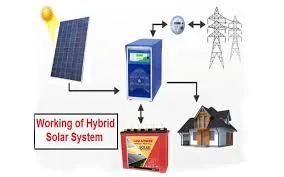As Sri Lanka advances toward its goal of generating 70% of its electricity from renewable sources, the government is introducing a groundbreaking solar tariff that will allow the Ceylon Electricity Board (CEB) to purchase solar energy stored in batteries for nighttime use. This initiative aims to address system stability issues while promoting sustainable energy solutions.
A New Opportunity for Solar Investors
Energy Minister Kumara Jayakody recently announced in Parliament that the proposed tariff will be structured to attract investors, ensuring a profitable return for those who integrate battery storage with solar power systems. “They can charge the battery during the day and supply to our grid at night,” he stated, emphasizing that the scheme will offer competitive incentives to participants.
A special committee has been appointed to finalize the proposal, which will be submitted for cabinet approval before implementation.

Enhancing Energy Stability in Sri Lanka
Sri Lanka has seen rapid growth in rooftop solar installations over the past two years. However, this has posed challenges to grid stability, particularly on weekends when electricity demand fluctuates. The country experienced a cascading power failure in early 2025 due to an over-reliance on solar energy during low-demand periods. To prevent such incidents, CEB is focusing on battery energy storage systems and pumped-storage hydro plants to balance supply and demand effectively.
Changes in Net Metering Policies
With global energy markets evolving, Sri Lanka is also considering changes to its net metering policies. Many countries are shifting away from traditional net metering in favor of ‘self-produced, self-consumed’ power models with limitations on excess energy sales to the grid. Such reforms aim to ensure that the true costs of renewable energy, including grid infrastructure upgrades and backup thermal plants, are accurately accounted for.
What This Means for Sri Lanka’s Medical Community
For doctors and professionals considering solar energy, this new policy presents a timely investment opportunity. With rising energy costs and increasing power demand in hospitals, clinics, and private practices, a solar-plus-battery system could provide energy security while reducing long-term electricity expenses. Additionally, as high-consumption users, medical professionals can leverage government incentives and emerging tariff structures to maximize their benefits.
The Global Perspective & Lessons for Sri Lanka
Countries like Germany, which previously faced challenges with renewable energy integration, are now revising grid fees to prevent industries from relocating due to high electricity costs. Sri Lanka can learn from these experiences by ensuring that its transition to renewable energy is both economically viable and technically stable.
The Road Ahead
With the upcoming solar tariff and battery storage incentives, Sri Lanka is taking a significant step toward a greener, more resilient energy future. For professionals, businesses, and homeowners alike, this presents an excellent opportunity to invest in sustainable energy solutions that ensure both cost savings and energy security.
For more updates on renewable energy policies and solar investment opportunities in Sri Lanka, stay connected with ADS Solar.

